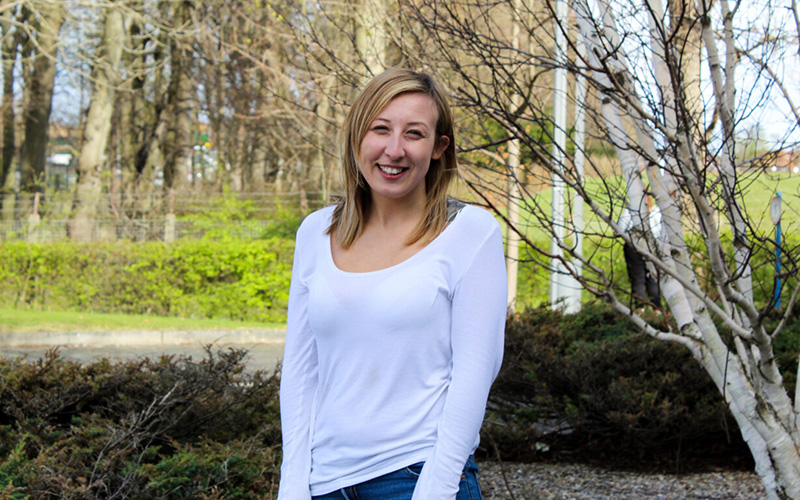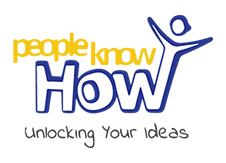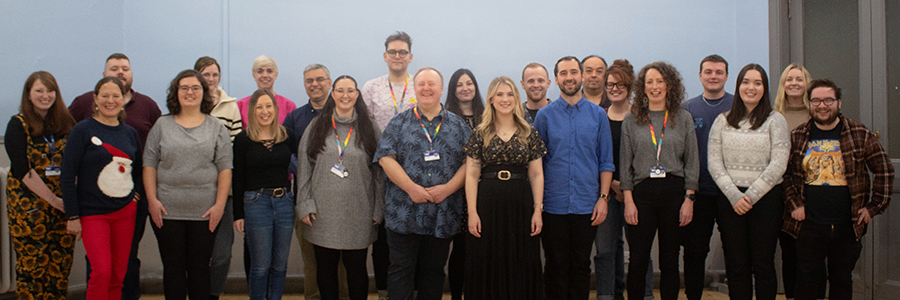This Neurodiversity Celebration Week, we spoke to our some of our team about the importance of neurodiversity inclusivity.
ADHD, Autism, Dyslexia, Dyspraxia, Dyscalculia or Tourette’s Syndrome are all forms of neurodiversity. It is thought that up to 15% of the population are thought to be neurodiverse. Harvard Health defines neurodiversity as “the idea that people experience and interact with the world around them in many different ways; there is no one 'right' way of thinking, learning, and behaving, and differences are not viewed as deficits”. While many types of neurodiversity are highlighted during youth, many cases are diagnosed during adulthood, which can often help adults feel content with who they are.
At People Know How, inclusivity is one of our core strategic values, supporting our vision to ensure that those who need support can be heard by decision makers and placed at the centre of solving social issues. As such, we equip our team with the knowledge and tools to support all parts of the community, while also fostering inclusivity in the workplace. We strive towards an inclusive workplace through training, a supportive management team, open and clear communication, collaboration with organisations like Access to Work, and opportunities to get involved with initiatives like our staff Inclusivity Group led by our Inclusivity Representatives.
Leah, Acting VIP Officer
Leah joined People Know How in 2022 as a VIP Coordinator, facilitating the needs of our VIPs (volunteers, interns and placement students) and ensuring they are supported and trained to provide meaningful support to those who use our services.
She was diagnosed with inattentive and hyperactive ADHD late in her adult life. This meant that, before her diagnosis, she often struggled with work and tasks but didn’t know why this was. In previous workplaces she hadn’t found support, which made her feel frustrated.
Leah describes her experience with People Know How as a complete 180 compared to previous jobs. Having a supportive manager like VIP Manager Amy has made such a difference, as they have worked together to find alternative ways of working that allow Leah to feel confident and able to share new ideas that can be put into practice. She has also joined our Inclusivity Group and regularly shares thoughts and ideas about making People Know How even more inclusive.

Thanks to the environment Leah works in, she receives positive feedback from the VIPs she supports and has recently earned her a promotion to Acting VIP Officer. Since her diagnosis she’s become an advocate for people with ADHD, sharing her experiences in her blog Wonky Noggin’.
Empowering young people
Our team of Youth & Family Coordinators support young people in schools across Edinburgh and the Lothians through our Positive Transitions service.
52.9% of the young people we support are neurodiverse, experiencing ADHD, ASD, dyslexia and other additional support needs. Liaising with schools and classroom teachers allows us to identify neurodiverse young people who may benefit from services designed to support their learning and development. CAMHS (Child and Adolescent Mental Health Services) are NHS services that assess and treat young people with emotional, behavioural or mental health difficulties. The CAHMS waiting list can be long and we have previously supported young people who have been on it for at least 18 months. Currently 22% of the young people we support are on the CAMHS waiting list with a further 14% currently receiving CAMHS support.
Our team of Youth & Family Coordinators take pride in observing the positive growth of the young people they support from session to session. They attribute part of their ability to connect with neurodiverse young people to the environment that People Know How creates.
Placing inclusivity at the heart of our mission and vision leads to positive change. This Neurodiversity Celebration Week, we’re proud to say we’re making a difference. We support and embrace everyone who provides and receives our support, cultivating an inclusive, diverse and welcoming culture for all which shines through the support we provide to the community.
Learn more about People Know How, our staff and the importance of inclusivity in our work in our new strategy.

